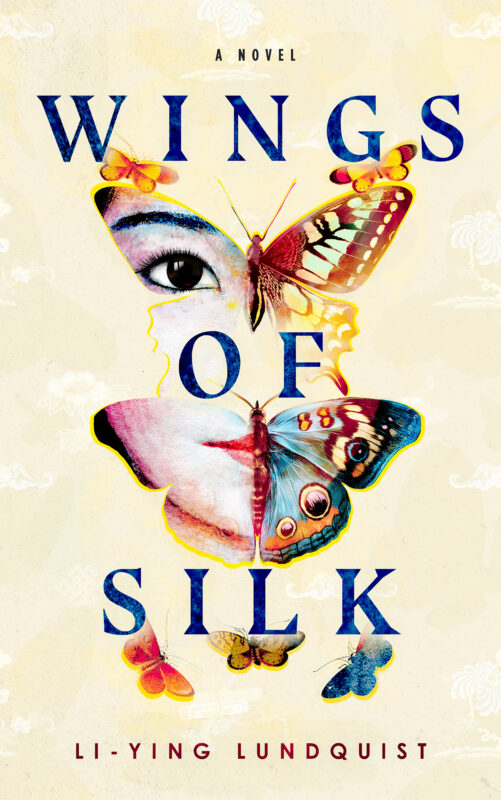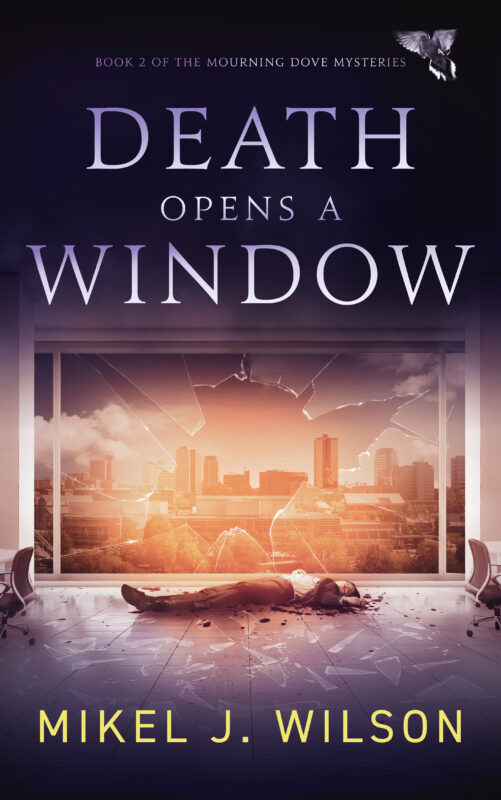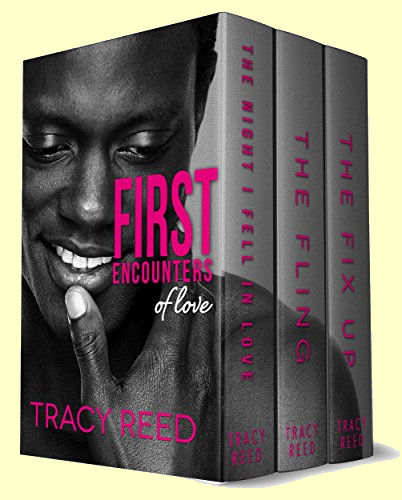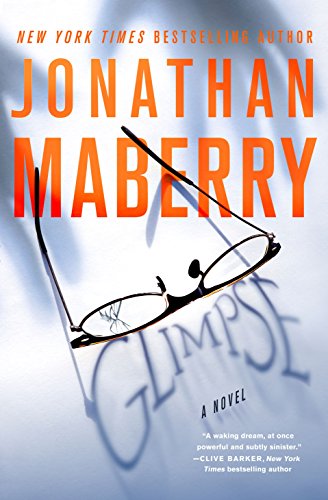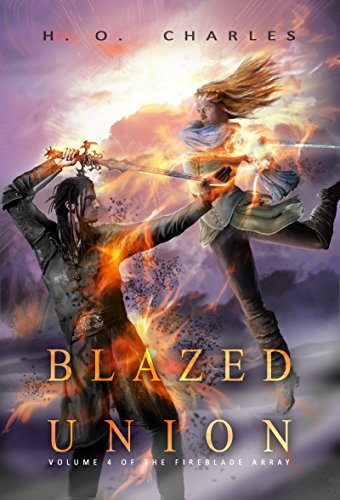AUTHOR INTERVIEW
September 7, 2007 by A Slice of Orange in category Archives tagged as Author Interview JANET QUINN’s Life Balancing Act
JANET QUINN’s Life Balancing Act
Janet Quinn has wanted to be a published author since she was seventeen. Despite the demands of her “other life” as mother, teacher, and active OCC volunteer, she’s managed to accomplish her goal and garner ten sales to her credit.
Q. Janet, you are one busy lady. I know that you work as a Director of Education, are a mother of three boys, an active member of OCC, and you still find time to write. Can you give us some idea of how you manage all this so well?
A. Luckily my sons are grown and don’t take a lot of time now, though all three of them are living with me again. My youngest does most of the cooking, shopping and housework, which helps. I only work a 30 hour week, which is more than enough. When I get home at 5 p.m. on Thursdays,I become a writer instead of the Director of Ed for Sylvan. Thursday night through Sunday night I write and do promotion. I usually write during the afternoon and evenings since the boys go out and it’s just me and Chewbacca, the dog. He likes to help me write. He thinks if I’m at the computer, I must want to play ball.
Q. Do you ever have trouble keeping up with it all?
A. Yes, sometimes I don’t manage so well. There are days I just sit on the couch and watch TV or read a book. Then the next day I’m back at it. Everyone is allowed days when they can’t cope and I figure I’m allowed a couple a month.
Q. I agree! I personally take several! Looking back, is there anything you wish you’d done differently after publishing that first book?
A. I’ve always wished my first editor and I had a better relationship. I’ve had a couple of agents I wished I’d never hired. Otherwise, I’m pretty happy with what I’ve managed to accomplish.
Q. You should be. So what’s the best writing advice you ever received?
A. Sit my backside in the chair and finish the book.
Q. Yeah, sitting is good; finishing the book is even better. But what inspires you to get past the hard times?
A. My sons inspire me. They have always been very supportive. My middle one said to me once, “I tell everyone you’re a writer. It would be nice it you sold something.” A week later I sold my first book. A lot of my inspiration also comes from within. I love telling stories. I always have since I learned to talk and I just can’t imagine not putting them down.
Q. I know that THE KILTED GOVERNESS is available now, and you’ve sold a contemporary
that should follow soon. So what can we expect to see from you after that?
A. I have a witch book and an alternative universe book I’m working on. Those are both fun, though the alternative universe is a challenge to make it different than a fantasy. I’m also working on a sequel to THE RIVER’S TREASURE which is my first sequel and an underground railroad story. I think I’m moving more to the fantasy side because I find it so much fun to create worlds where my rules are the only ones that count.
*********************************************************
Available now by Janet Quinn at her website: www.janet-quinn.com –
WHISKEY SHOTS Vol 7 from Whiskey Creek Press,
WILD HONEY
Available from Whiskey Creek Press –
THE IRISH COUNTESS, THE LUCKY LADY and A MOMENT IN TIME
Available at Amber Quill Press –
THE KILTED GOVERNESS, ARROW OF THE HEART and THE RIVER’S TREASURE
*********************************************************
(Sandy Novy-Chvostal aka Sandra Paul loves interviewing OCC’s talented authors. To read more of her interview with Janet–and to learn Janet’s thoughts on writing for e-publishers compared to a traditional house, check out the OCC interview in the September ’07 issue of the Orange Blossom.)
Advice to Myself as a Newbie Author
September 5, 2007 by A Slice of Orange in category Archives tagged as Advice to Myself as a Newbie Authorby Rebecca Forster
Here’s the truth: every book you write will feel like the first one, every day you face a blank computer screen you will feel like an amateur, every minute you spend waiting to hear from an editor or agent will leave you second guessing your experience, your talent, your purpose and your creativity.
If this doesn‘t scare you, then congratulations and welcome to the writer’s club. You are doing what almost everyone in the world dreams of and you’re doing it despite naysayers and, sometimes, your own self doubt. The first step is a heady, marvelous, challenging moment – one you’re destined to take many times over in the course of your creative career.
As I write this, I am sitting in my favorite writing spot – a coffee shop overflowing with Salvation Army furniture, an eclectic clientèle, and spotty Internet access – hoping to I will hear good news from my agent. While I wait, my brain is pinging between the project that is finished but not sold, another one that is in the proposal stage, the zygote of a new idea, housework undone, bills that need to be paid, kids in college and a weekend away with my husband. Nothing is really getting done and it’s time for me to ground myself yet again.
I have published twenty books in three genres and even enjoyed a flash-bang moment of bestseller status. I have taught writing at university extension programs and been engaged for hundreds of speaking engagements. Most days, though, I feel as green as Al Gore. In analyzing myself and my work I find I am a creative schizophrenic. I have a short attention span but can work for twelve hours editing a manuscript without lifting my head, I am instantly energized and just as quickly disheartened, I am impatient yet can wait like a loyal dog to hear from an editor, I am creative but have to work hard to sustain that creativity.
In the final analysis, I am like every other new or experienced author. We are all newbies because of the nature of the beast we are trying to tame. Publishing and reading fashion are ever changing, editors are in constant flux, new media competes for a consumer’s disposable dollars and booksellers struggle. Knowing all this I must remind myself to relentlessly reengage as a writer, businesswoman, promoter and thoughtful craftsperson. Daily I search for that focused place that will allow me to write effectively. I walk the fine line between taking comfort in past success and worrying about future rejection.
And so, I give counsel myself. Usually this advice is predicated by a swift kick to my emotional rear: self-pity is equally as dangerous as blind faith in my own brilliance. For what it’s worth, my advice to myself as a newbie is the same advice I give to myself as a published author. It works for me, perhaps one or two suggestions will work for you.
1. Write with abandon; edit with discipline and objectivity
2. Acknowledge your talent and develop your writing intelligence. Talent will get you started; intelligence will move you forward.
3. Find one person with an honest, consistent voice who will tell you the truth about your work. Often this is a reader, not a writer.
4. Listen to your critique group but go with your gut. Logic beats emotion. You can’t please everyone. Give weight to #3.
5. Rejection letters are the Mother Lode. Mine them for every bit of of actionable information.
6. Never, ever get angry with an editor. They want you to succeed. They have neither the time nor inclination to reject you just for fun.
7. When you are completely blocked go play tennis or golf or garden or quilt. Do something physical and forget about writing for a day, a month, a year. The spark will come back.
8. Learn the business. All of it. Publishing, bookselling, public relations, public speaking, contracts and finances. Relate all information to your creative effort.
9. Celebrate a contract with your family first then with your writing buddies.
10. Thank people who help you and ask for help when you need it.
Best wishes for good writing and successful selling.
 Rebecca Forster
Rebecca Forster
http://www.rebeccaforster.com/
HOSTILE WITNESS
SILENT WITNESS
PRIVILEGED WITNESS
President’s Message
September 1, 2007 by A Slice of Orange in category Archives tagged as President's MessageTHANK YOU, JONATHON GOLD
by OCC Co-President Sandy Novy-Chvostal
“Did you hear,†fellow writer Colleen Adams asked me awhile back, “that Jonathan Gold won a Pulitzer?â€
“No, kidding!†I exclaimed. “Who’s Jonathan Gold?â€
Jonathan Gold, I learned, is a food critic. He started his restaurant-review column, “Counter Intelligence,†at the L.A. Weekly (a free, tabloid style publication) in 1986. He brought it to the Los Angeles Times for a few years before returning to the alternative paper in 1996. He’s known for evaluating all kinds of eating establishments, from pushcart vendors to gourmet restaurants. He won in the Distinguished Criticism category.
And he’s the first food critic ever to be awarded a Pulitzer.
“As soon as I heard a food critic had won, I knew it was Jonathan Gold,†Colleen told me. “Every time I read his column, I want to rush out and try the place he’s reviewed.â€
Intrigued, I googled Gold to read his columns for myself. I discovered Colleen—and Michael Lacey, executive editor of Village Voice Media which owns the L.A. Weekly—are right.
“Like many of our best critics,†says Lacey, “he [Gold] is a cultural omnivore who can write captivatingly about almost anything. His gift to us is that he chose food.â€
As this year speeds by and I work on my writing, and help out with OCC’s multiple endeavors such as our contests, our print publication The Orange Blossom, and our internet e-zine, A Slice of Orange, I often think of Jonathan Gold, food critic, winning a Pulitzer Prize.
It reminds me that contests can be wonderful for drawing attention to a writer. That sometimes success can take years to achieve. That it isn’t the size of a publication that necessarily matters, but rather the quality of what you produce. That talent can shine in any medium, whether it be food reviews or romance novels.
Thank you, Jonathan Gold, for the reminder. And congratulations on your win.
Happy Writing,
Sandy
![]()
Sandy Novy-Chvostal (aka Sandra Paul) has a degree in journalism, but prefers to write from the heart. She is married to her high school sweetheart and they have three children, three cats, and one overgrown “puppy.” Her 2006 Silhouette Romance DOMESTICATING LUC was a finalist in this year’s RITA Awards.
And Then What Happened? Scene, Sequel and More Workshop
September 1, 2007 by Marianne H. Donley in category Archives tagged as Online ClassInstructor
You might even have a synopsis. You’ve written what you think are three terrific opening chapters. Now what? You’ve realized a five, ten, twenty page synopsis isn’t helping you write the book. It’s dawned on you that sitting down every day and hammering out another scene, and then another, and another after that isn’t for the faint of heart. You have no idea how to keep that story rolling, those pages turning, that energy going. Overwhelmed, you’re stymied.
Best selling, award winning author, Jill Marie Landis, will show you how to increase your productivity, tighten each scene for the most impact, and make your scenes come alive with action and emotion in her “And Then What Happened? Scene, Sequel and More Workshop.â€
About the Instructor:
Jill Marie Landis’s work has earned distinguished awards and slots on such national bestseller lists as USA Today’s Top 50, the New York Times’ Bestsellers Plus and RWA’s distinguished Honor Roll.; SUMMER MOON, her first hardcover, was chosen by Library Journal as one of the Top Five Romance Fiction Novels of 2001. The winner of the Romance Writers of America RITA award, Jill Marie has had seven of her twenty novels in the Rita Finals.
After penning fourteen historical romances, her debut contemporary novel, LOVER’S LANE, published by Ballantine Books, launched Jill Marie’s Twilight Cove Series set in a fictional northern California beach town. The second book in the series, HEAT WAVE, garnered a number of “perfect 10” reviews while HEARTBREAK HOTEL, the third book of the trilogy, was chosen by “Booklist” as one of the Top Ten Romances of 2005 as well as earning her another Library Journal Top Five Romance Novels recognition in 2005. Jill has just completed her first single title Inspirational historical novel for Harlequin’s Steeple Hill Books. Entitled HOMECOMING, it will be published in August 2008.
Enrollment Information:
COST: $20 for OCC members $30 for non-members
Enrollment deadline: September 8, 2007
http://occrwa.com/classes_September.htm
For more information see the website or email moderator Marianne Donley at MHDonley@aol.com
CyberTalk
August 30, 2007 by A Slice of Orange in category Archives tagged as CyberTalkwith Gina Black
 Today my topic is one we’d all rather NOT think about, although many of us take precautions.
Today my topic is one we’d all rather NOT think about, although many of us take precautions.
I’m talking about what happened to me just a week ago: my hard drive crashed. And, yes, it took everything with it. This was the second time that happened to me. The first time was a slow drawn-out process where I could tell it was going and I quickly backed up everything. Since then, I bought an external hard drive and back up frequently so I thought I was safe from data loss. But the truth is, you have to be very diligent and crafty to achieve that and I hadn’t been due to my travels and various other things.
What can you do to guard against data loss completely? Burn candles? Light incense? Pray to the computer gods?
Maybe that will help, but the best way to keep the bottom from dropping out is to have a redundant backup program that you adhere to with the fervor of a religious zealot. All it takes is losing your WIP once to get you there. But it’s even better if you do this without the upfront data loss.
Here are my suggestions:
1/ Have an external hard drive and back up your data and preference files (and anything you’ve customized) on a regular basis, like weekly, biweekly but no less than monthly.
2/ Have a safe place on the internet where you can backup your files. If you have a Mac you can purchase a .mac account. There are loads of other services that offer to backup your data files, but here are some suggestions that are by no means exhaustive of what’s available.
- Start a yahoo group with your critique group or you could have your own. Save your writing files in the file area. Make sure it is NOT accessible to the public (yahoo has a “management” area where you do this).
- Get a gmail account (they come with a HUGE amount of storage) and email your WIP to yourself every day at the end of your writing session. If you don’t have a gmail account and you want one, leave me a message in the comments and I’ll send you an invitation.
3/ Put your files on a USB flash drive (one of those little things you plug into your computer). Be aware that these drives can fail, so this must be part of a redundant system.
4/ Burn all your old an unchanging data files (like those manuscripts you’ve sold or the ones that are gathering cyber-dustbunnies on your hard drive) to CD. Get them out of your house unless you are impervious to fires, earthquakes, or loss. Put them in a safe deposit box, or give them to a trusted family member or friend. CDs can fail too, so it doesn’t hurt to have two sets out there.
5/ If you have a Google account you can upload your WIP to the “documents” area and even work on it there. This is a good way to do things if you float from computer to computer. It’s easy to download them onto a local host at any time.
6/ If you have a website and it has a secure area, you can FTP your files there.
Whatever you do, do something and do it now. If I’d been a bit more diligent about backing up my finances (my writing files survived), I wouldn’t be losing part of this upcoming three day weekend to resurrecting three months worth of transactions instead of revising my WIP.
 Somehow, Gina manages to work some writing time in around her internet adventures. In addition to posting here, she blogs on The Gina Channel, Romancing the Skein, and Title Wave.
Somehow, Gina manages to work some writing time in around her internet adventures. In addition to posting here, she blogs on The Gina Channel, Romancing the Skein, and Title Wave.
And yes, her computer screen really has burned itself into her glasses.
Affiliate Links
A Slice of Orange is an affiliate with some of the booksellers listed on this website, including Barnes & Nobel, Books A Million, iBooks, Kobo, and Smashwords. This means A Slice of Orange may earn a small advertising fee from sales made through the links used on this website. There are reminders of these affiliate links on the pages for individual books.
Search A Slice of Orange
Find a Column
Archives
Featured Books
FIRST ENCOUNTERS OF LOVE
The FIRST ENCOUNTERS OF LOVE box set includes three stories of romantic firsts.
More info →GLIMPSE
A chilling thriller that explores what happens when reality and nightmares converge, and how far one will go to protect the innocent when their own brain is a threat.
More info →BLAZED UNION
Fate has other plans for those with fire and fury in their hearts.
More info →Newsletter
Contributing Authors
Search A Slice of Orange
Find a Column
Archives
Authors in the Bookstore
- A. E. Decker
- A. J. Scudiere
- A.J. Sidransky
- Abby Collette
- Alanna Lucus
- Albert Marrin
- Alice Duncan
- Alina K. Field
- Alison Green Myers
- Andi Lawrencovna
- Andrew C Raiford
- Angela Pryce
- Aviva Vaughn
- Barbara Ankrum
- Bethlehem Writers Group, LLC
- Carol L. Wright
- Celeste Barclay
- Christina Alexandra
- Christopher D. Ochs
- Claire Davon
- Claire Naden
- Courtnee Turner Hoyle
- Courtney Annicchiarico
- D. Lieber
- Daniel V. Meier Jr.
- Debra Dixon
- Debra H. Goldstein
- Debra Holland
- Dee Ann Palmer
- Denise M. Colby
- Diane Benefiel
- Diane Sismour
- Dianna Sinovic
- DT Krippene
- E.B. Dawson
- Emilie Dallaire
- Emily Brightwell
- Emily PW Murphy
- Fae Rowen
- Faith L. Justice
- Frances Amati
- Geralyn Corcillo
- Glynnis Campbell
- Greg Jolley
- H. O. Charles
- Jaclyn Roché
- Jacqueline Diamond
- Janet Lynn and Will Zeilinger
- Jaya Mehta
- Jeff Baird
- Jenna Barwin
- Jenne Kern
- Jennifer D. Bokal
- Jennifer Lyon
- Jerome W. McFadden
- Jill Piscitello
- Jina Bacarr
- Jo A. Hiestand
- Jodi Bogert
- Jolina Petersheim
- Jonathan Maberry
- Joy Allyson
- Judy Duarte
- Justin Murphy
- Justine Davis
- Kat Martin
- Kidd Wadsworth
- Kitty Bucholtz
- Kristy Tate
- Larry Deibert
- Larry Hamilton
- Laura Drake
- Laurie Stevens
- Leslie Knowles
- Li-Ying Lundquist
- Linda Carroll-Bradd
- Linda Lappin
- Linda McLaughlin
- Linda O. Johnston
- Lisa Preston
- Lolo Paige
- Loran Holt
- Lynette M. Burrows
- Lyssa Kay Adams
- Madeline Ash
- Margarita Engle
- Marguerite Quantaine
- Marianne H. Donley
- Mary Castillo
- Maureen Klovers
- Megan Haskell
- Melanie Waterbury
- Melisa Rivero
- Melissa Chambers
- Melodie Winawer
- Meriam Wilhelm
- Mikel J. Wilson
- Mindy Neff
- Monica McCabe
- Nancy Brashear
- Neetu Malik
- Nikki Prince
- Once Upon Anthologies
- Paula Gail Benson
- Penny Reid
- Peter Barbour
- Priscilla Oliveras
- R. H. Kohno
- Rachel Hailey
- Ralph Hieb
- Ramcy Diek
- Ransom Stephens
- Rebecca Forster
- Renae Wrich
- Roxy Matthews
- Ryder Hunte Clancy
- Sally Paradysz
- Sheila Colón-Bagley
- Simone de Muñoz
- Sophie Barnes
- Susan Kaye Quinn
- Susan Lynn Meyer
- Susan Squires
- T. D. Fox
- Tara C. Allred
- Tara Lain
- Tari Lynn Jewett
- Terri Osburn
- Tracy Reed
- Vera Jane Cook
- Vicki Crum
- Writing Something Romantic
Affiliate Links
A Slice of Orange is an affiliate with some of the booksellers listed on this website, including Barnes & Nobel, Books A Million, iBooks, Kobo, and Smashwords. This means A Slice of Orange may earn a small advertising fee from sales made through the links used on this website. There are reminders of these affiliate links on the pages for individual books.

